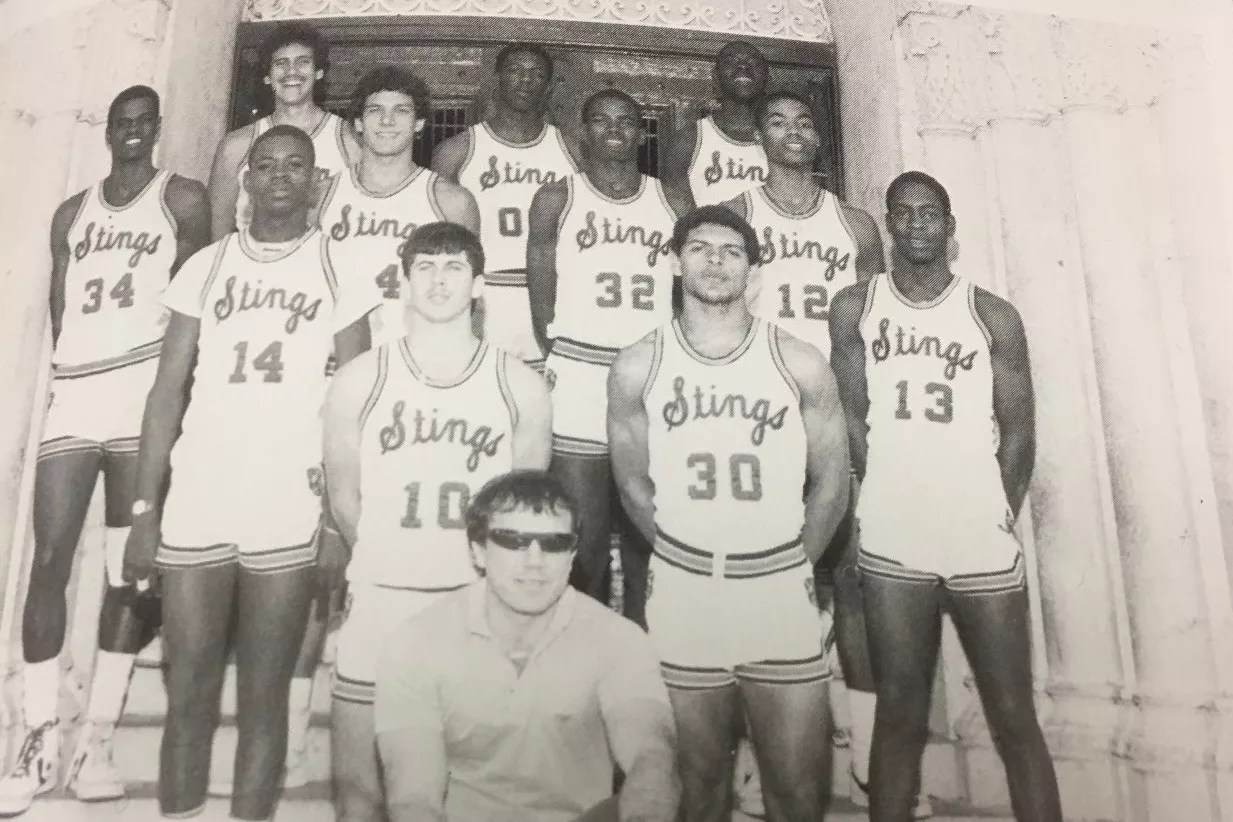

Audio By Carbonatix
Marcos “Shakey” Rodriguez was a Miami basketball legend.
The longtime coach rose to prominence at Miami Senior High School in the ’80s before moving to Florida International University for five years starting in 1995. His teams had a staggering amount of power ballers from around the country, and he had the distinction of coaching future NBA players Raja Bell and Carlos Arroyo in their younger days.
Rodriguez, nicknamed “Shakey” because of his characteristic inability to sit still, died November 4 of a brain aneurysm at age 67. His death was met with an outpouring of grief from many in the Miami sports community.
“He was a father figure to a lot of the players who did not have fathers,” says Arroyo, who played for the coach at FIU before heading to the NBA.
Two weeks after Rodriguez’s death, he was honored by the City of Miami, which named a street after the beloved coach.
“Maybe to his family he was known as Marcos Rodriguez, but to everybody else he was Shakey,” Miami Mayor Francis Suarez said during a city commission meeting last month when the honor was bestowed.
But Rodriguez’s complicated legacy in the Miami sports world has led some to question whether the city made the right decision in naming a street after the coach.
Over the years, Rodriguez was repeatedly accused – though never formally charged – of recruiting violations, including the use of players with falsified addresses. The accusations dogged Rodriguez for most of his career. Former Florida High School Athletic Association executive director Roger Dearing told New Times in 2011: “The thing he needs to learn is you’re remembered for the example you set. The bad ten percent overshadows the good ninety percent.”
Rodriguez’s “good ninety percent” was legendary. He won five state championships in 14 seasons as head coach of the mighty Miami High Stingarees.
Yet one coach thinks Rodriguez’s “bad ten percent” marred his legacy.
“He would have been the last person to serve as a positive role model for our children,” says David Villano, head soccer coach at the tony Ransom Everglades School. “I know what he represented at the time.”
Villano, who has been coaching since ’86, says that while Rodriguez was lauded at Miami High, past allegations of recruiting violations put a “cloud over his program.”
The Florida High School Athletic Association (FHSAA) serves to ensure that schools allow their students “to participate on a fair and equitable basis in interscholastic athletic programs.” Per state guidelines, teens are supposed to play sports at schools in their own neighborhoods. Skirting those rules means youthful competitors can have their dreams dashed through unfair competition and lost opportunities.
Dearing, the one-time FHSAA executive director, in a 2011 interview with New Times flat-out accused Rodriguez of “purposefully cheating” by using players with fake addresses.
“I have no doubt that Shakey Rodriguez knows what he’s doing here,” Dearing remarked.
Former players and coaches on opposing teams, from decades back, clammed up when New Times called to discuss Rodriguez’s legacy after the coach’s death. Detectives on The First 48 have better luck breaking murder suspects. The old dictum “do not speak ill of the dead,” coined by Chilon of Sparta in the Sixth Century, comes to mind.
But Villano, the Ransom Everglades coach, says he wants to stand for what’s right, even if it means standing alone. To him, gamesmanship is not sportsmanship.
“Shakey was the beginning of the end of honest, self-regulated high school sports, where coaches and school administrators played by the rules not because they were afraid of getting caught, but because they wanted to do the right thing on behalf of their student-athletes,” Villano says. “Now it’s the Wild West, where cheating is so widespread at some schools that most people don’t even consider it cheating. He blazed that trail.”
One remnant of that trail is Marcos “Shakey” Rodriguez Way, located at Southwest Third Street between 24th and 25th Avenues, in front of Miami High’s Asylum gym.
While elected officials across South Florida regularly rename roads as a way to honor prominent residents, the practice has led to some controversial choices. Last year, Miami-Dade County commissioners voted to have staffers prepare a background report on any person whose name was being considered for a street designation.
That policy hasn’t necessarily stopped streets from being named after problematic figures, however: In October, commissioners voted to name a road after former Colombian President Álvaro Uribe though he faces pending charges of fraud and witness tampering.
The City of Miami, meanwhile, has no such policy on the books.